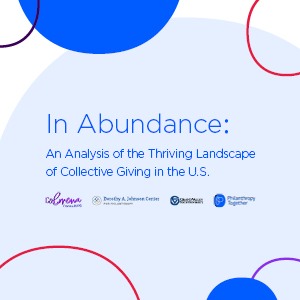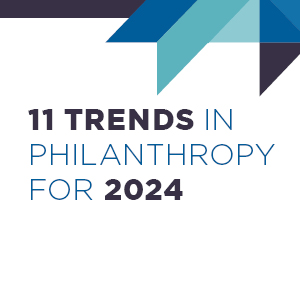Podcast // Next Gen Philanthropy
Michael Moody and Sharna Goldseker discuss their book, “Generation Impact: How Next Gen Donors Are Revolutionizing Giving.”


















Michael Moody and Sharna Goldseker discuss their book, “Generation Impact: How Next Gen Donors Are Revolutionizing Giving.”
Award-winning author and trusted philanthropic advisor Kris Putnam-Walkerly shares real-world, practical guidance for creating transformational change and avoiding mistakes that hamstring impact.
Michael Moody and Sharna Goldseker discuss how younger generations are approaching philanthropy and how families can navigate multigenerational giving.
Michael Moody and Sharna Goldseker join host Ted Hart on this episode of Nonprofit Coach to discuss the next generation of philanthropists and their impact on the sector.
In this video from the fifth National Summit on Family Philanthropy, we hear from four next gen donors about how they are forging new paths toward social justice.
In this video, three donors share difficult but inspiring stories of giving, serving, and organizing in the wake of trauma — including abuse, gun violence, and a devastating hurricane.
In this panel discussion from the fifth National Summit on Family Philanthropy, three couples explore the joys and complexities of travelling their donor path together.
The fifth and final National Summit on Family Philanthropy, themed “Our Donor Journeys and Why They Matter,” was held in Fort Lauderdale, Fla., on January 28 and 29, 2019.
In this webinar, we discuss how the growing gaps in our data could shape the future of fundraising, community giving, research, and policymaking.
Philanthropic families care about legacy as well as impact — but at times, honoring both can be a challenge. In this webinar, we discuss how both long-standing and newer family foundations are tackling this issue.